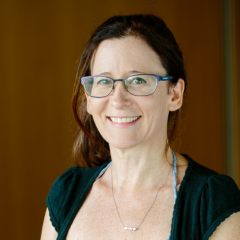As the bulk supplier of drinking water to South East Queensland, Seqwater maintains a Catchment and Drinking Water Quality Micro Pollutant Monitoring Program to ensure a safe and reliable supply of the region’s drinking water source reservoirs. The aim of this program was to identify and understand the presence of a range of micropollutants in the source water reservoirs as well as to recognise any spatial and temporal trends of micropollutants. An extension of this program has been introduced to include the use of passive sampling technologies in the monitoring of source water reservoirs over a three-year period (2020 – 2025; summer and winter sampling campaigns), to accurately assess the risk micro pollutants posed to drinking water quality. Additional passive samplers were deployed at sites when required during high rainfall, flood, or event periods. Additionally, a novel PFAS sampler was deployed across 36 catchment areas in 2018 and again in 2024, to assess the risk of PFAS in source catchment areas.
Outcomes
This project has provided catchment water quality risk assessments across 38 sites in South East Queensland over the last 8 years. Nine reports to date have been completed (after each summer and winter sampling campaigns from 2020-2024) highlighting results from the monitoring campaign. These reports have been made publicly available to all Australians via the Seqwater website. The data generated through this project continues to inform the water industry of any water quality risks and guideline exceedances. The tools applied and developed through this project have been used for multiple other sampling campaigns across Australia. This project provides one of the very few long-term datasets of its kind in Australia and this helps us to understand temporal trends in pollutant exposure and monitoring in Australian waterways.
In addition to the passive samplers used for detecting target analytes (such as pesticides, pharmaceuticals, personal care products, Organochlorine pesticides (OCPs), Polycyclic hydrocarbons (PAHs)), novel samplers were developed, calibrated and used to detect additional contaminants of concern such as per and polyfluoroalkyl substances (PFAS), neonicotinoid pesticides, and glyphosate.
Additional activities that resulted from the ongoing work and collaborative activity with Seqwater have included:
- An investigation of PAHs and UV filter concentrations in source waters at sites that allow and do not allow recreational activities. 2025 Verhagen, R. et al, Environmental Toxicology and Chemistry paper below.
- An investigation into whether suspect screening and non-target analytical techniques are ready for use as part of regulatory compliance monitoring of contaminants. 2023 Schulze, B. et al, Analytical Chemistry paper below.
- A global collaboration on the assessment of Stockholm convention listed persistent organic pollutants (POPs), in waters of the world, including Queensland, Australia. 2023 Lohmann, R. et al, Environmental Science and Technology paper below.
Research Outputs
Conference Abstracts
Veal, C., Kaserzon, S., Duff, J., Mueller, J., Shillito, D. Characterizing micro-pollutant use and fate in South East Queensland. Australian Water Association’s OzWater’17 Conference, Sydney, NSW, Australia, 16-18 May 2017.
Research Impact
The work with Seqwater has led to the development and application of new monitoring tools to address challenging water pollutants such as glyphosate, per-and-poly-fluorinated chemicals, tyre wear particles, and UV filters. Seqwater and QAEHS continue to expand and improve the developed technologies that address current and emerging chemicals of concern.


